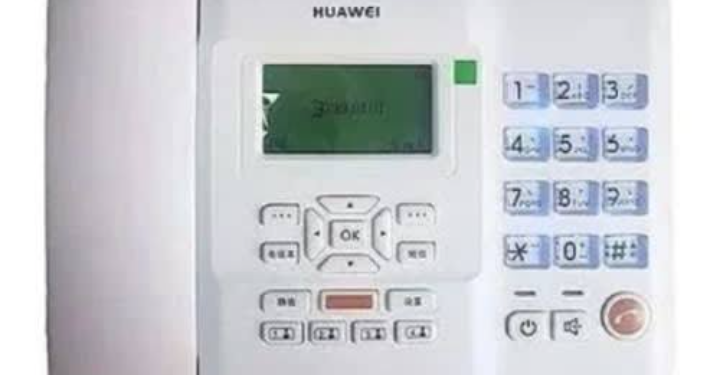By Sonny Aragba-Akpore
Prospects of fixed telephone lines making headlines are over as many people are no longer excited about installing the fixed line in their homes or offices.
The emphasis on mobile telephony has further fueled the disenchantment owing to the flexibility and ease of use.
And despite the myriads of complaints about the service especially poor quality of service and data depletion among others, Nigerians are still excited about the mobile telephony.
Industry regulators,the Nigerian Communications Commission (NCC) tells us why.
“Fixed line telephones are no longer fashionable elsewhere in the world as millions of people now emphasize the use of mobile phones in their homes and offices.
“NCC,s Chief Executive,Dr.Aminu Maida explained at a recent interactive session with critical media stakeholders in Abuja.
The few Network Operators offering fixed lines do so only in the city centres through optic fibre connectivity and some via fixed wireless.
These include IPNX,MTN Group,21st Century Technology, Broadband Connectivity, Spectranet, Tizeti among others.
Maida who went memory lane brought up the sad reality of Nigerian Telecommunications Limited(NITEL) which provided less than 500,000 lines to over 100m population.
This was before the Digital Mobile LICENCE of 2001 which revolutionized the telecommunications landscape and created a sense of belonging to majority of Nigerians who were starved of connectivity.
The dearth of fixed telephone services and the need to have even spread of mobile services and boost competition may have influenced the licensing of Globacom Limited in 2003 as Second National Operator (SNO).
Globacom Limited with a lorry load of licences including Mobile Telecommunications,Gateway services,fixed line among others has done very well as a mobile operator but very minimal presence of its fixed telephony.
But the concept of SNO has run out of fashion as the NCC opened up the sector by awarding the Unified Access Services Licence (UASL) which empowers any of such licencee to offer a montage of telecommunications services including but not limited to mobile,fixed and internet services among others.
Maids admitted that though fixed telephony appears unattractive,it will indeed reduce pressure on mobile services especially with regards to poor quality services, fibre cuts and vandalism which have in themselves become nightmare to everyone including consumers,operators and even the regulator.
But there is solution coming in the horizon with the 90,000 fibre optic ring initiative of the Ministry of Communications,Innovation and Digital Economy through a Special Purpose Vehicle (SPV) and the World Bank.
“In general term ,the fixed line is not imposed on any operators in a liberalized market “.
The 90,000 optic fibre spread will boost rural connectivity despite the slow pace of the Infrastructure Companies (Infracos) which were Licensed years ago to take services to rural and unserved communities across the country through metropolitan fibre optics.
Apart from Lagos State which got one operator to cover the implementation of Infracos services,the other six geopolitical zones got a licencee each for the same purpose of taking services to the unserved population.
Although the Infrastructure Companies licensed by the Nigerian Communications Commission (NCC) to deploy fiber optic infrastructure and broadband services, particularly in underserved areas has been on a slow lane to it’s promised land thereby boosting the spread of broadband connectivity in line with the National Broadband Plan (2020-2025), the NCC Executive Commissioner(Technical Standards) Mr. Abraham Oshadami an engineer, said it is “work in progress“.
Oshadami admitted that Infracos are a major component of the National Broadband Plan, which aims to expand internet access and bridge the digital divide across the zones, ”the Commission does not inhibit any operators from deploying its services according to the licence instrument as the commission continues to give its support to the Infracos when ever the need arises “.
Apart from Main One Cable which was licensed to deploy services in Lagos,others including Bitflux Communications Limited (Bitflux) for 2.3 Ghz and MTN Nigeria for the 2.6 Ghz licences were expected to deepen broadband services which stood at 22% by December 2017.
The Infracos are MainOne Cable, IHS, Zinox Technology and Brinks Solutions to cover Lagos, North-Central including Abuja, South-East and North-East respectively.
The others are O’dua Infraco Resources Limited for the South-West, Fleek Networks Limited for the North-West, and Raeana Consortium Limited for the South-South.
Earlier the NCC boss said the days of obscurity and technical jargon are officially over promising that subscribers will now know exactly which networks are delivering quality service and which are lagging behind.
The customers will take preeminence and have a say in what the operators are doing.
“We are putting the numbers in the public domain. Nigerians will clearly see which networks are delivering and which are failing,” adding that this marks a new era of accountability in Nigeria’s telecom sector.
“When consumers are happy, operators thrive, and the economy gets a much-needed boost.
“We are putting the numbers in the public domain. Nigerians will clearly see which networks are delivering and which are failing,” Maida stated.
He added that this marks a new era of accountability in Nigeria’s telecom sector. When consumers are happy, operators thrive, and the economy gets a much-needed boost.”
There will be Quality of Experience (QoE) portal launch in September, to allow users to check mobile network performance based on their location for both voice and data services.
“Imagine being able to see which operator is best in your area, all at your fingertips. This tool promises to put the pressure on operators to increase their game.
In addition to the QoE portal, the NCC is shaking things up with a three-part reform strategy.
The cybersecurity framework is aimed at safeguarding users against threats ranging from ransomware to phishing scams.
“By September 2025, operators will be required to meet certain security standards that include fortifying their networks against all sorts of digital mischief.”
All of these reforms will be boosted by a robust Corporate Governance Code that will mandate licensed operators to adopt best practices in accountability and transparency.
“No more shady business decisions and lack of oversight. Noncompliance could lead to penalties, license suspensions, or even management shake-ups. Talk about putting the fear of the NCC into those operators.
But it was not all cheery news as Maida explained that no fewer than one million Nigerian internet subscribers exited the usage of the
internet due to increasing cost of data bundles.
The NCC said subscription dropped from 142.16 million to 141.25 million users in just one month.
“But with these reforms underway, we hope to win back consumer trust, attract investment, and ultimately restore the quality that customers deserve,” Maida added.









